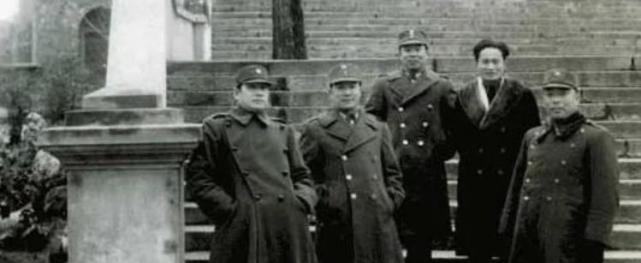The reorganized 74th Division of the Kuomintang Army was once an iron army of the War of Resistance Against Japanese Aggression, and during the War of Resistance Against Japanese Aggression, it was called the Seventy-fourth Army, the first commander, called Yu Jishi, who graduated from the first term of Huangpu, was a fellow villager of old Chiang, was also a relative of old Chiang, served as a personal bodyguard for old Chiang, and he became the commander of the Seventy-fourth Army, and the weapons and equipment of the Seventy-fourth Army must be the best in the Nationalist army. Under the leadership of Yu Jishi, the Seventy-fourth Army fought in the Battle of Songhu, the Battle of Nanjing, and the Battle of Wuhan. After he left office, he was succeeded by Wang Yaowu, a famous general of the War of Resistance, and Wang Yaowu's birth was Shi Zhongcheng.

After Shi Zhongcheng, it was Zhang Lingfu. Zhang Lingfu was officially appointed commander of the 74th Army on April 20, 1946, and in May 1946, the 74th Army was reorganized into the reorganized 74th Division, and he was the commander of the Lieutenant General Division. The reorganized 74th Division drove to Shandong, fought several battles with Huaye, and fought well, especially the battles of Huaiyin and Lianshui, which made Lao Jiang very happy, and the reorganized 74th Division also got the opportunity to expand. Zhang Lingfu thus gained more trust from Lao Jiang.
In late April 1947, the reorganized 74th Division added three regiments to the three brigades and six regiments, namely the 51st Brigade adding one regiment, the 153rd Regiment; the 57th Brigade adding 1 regiment, or 169th Regiment; and the 58th Brigade adding 1 regiment, the 173rd Regiment. The division was equipped with 12 105 mm howitzers, 54 75 mm mountain guns, 36 37 mm anti-aircraft guns, 96 81 mm mortars, 108 60 mm mortars, 36 bazookas, 54 flamethrowers and 108 heavy machine guns. In addition, there are 1080 7.62 mm 1918A2 light machine guns, 2400 9 mm American M1 Thomson submachine guns and Canadian Steagling carbines, and 4800 7.62 mm M1903A1 Springfield rifles.
However, at the time of the Battle of Menglianggu, the reorganized 74th Division did not bring the newly expanded three regiments, and the reason why it was not brought was that the soldiers of these three regiments were all new soldiers and were still in training. Second, the heavy weapons of these 3 regiments were insufficient, and the artillery above the 81 mm mortar was not equipped. The actual strength of the troops participating in the Battle of Menglianggu was 30,000 people. However, after the Battle of Menglianggu, Huaye's troops cleaned up the battlefield and found that there were more than 7,000 fewer people except for the three regiments, plus the enemy who was killed.
What is even more strange is that the interrogation department of Huaye's troops has actually intercepted a radio signal, which is constantly calling for help from Nanjing in the name of the reorganized 74th Division. What's going on? Upon hearing the news, HuaYe's chief immediately ordered all the units participating in the battle to quickly launch a search, and as a result, they found that this group of enemies was hiding in a mountain hollow on the 600 heights of Menglianggu, and they were sent by Zhang Lingfu to meet with Li Tianxia's division in order to achieve Zhang Lingfu's plan, with the 74th Division as the center, to attract Huaye's troops to fight them, and the other Kuomintang troops, and then surround Huaye from the periphery to achieve the final goal of encirclement and annihilation. But Zhang Jifu didn't expect that huaye's troops were moving too quickly, and moreover, Li Tianxia had a vendetta against him, and he wouldn't save him if he saw death. In the end, these seven thousand enemy soldiers also obediently became prisoners.